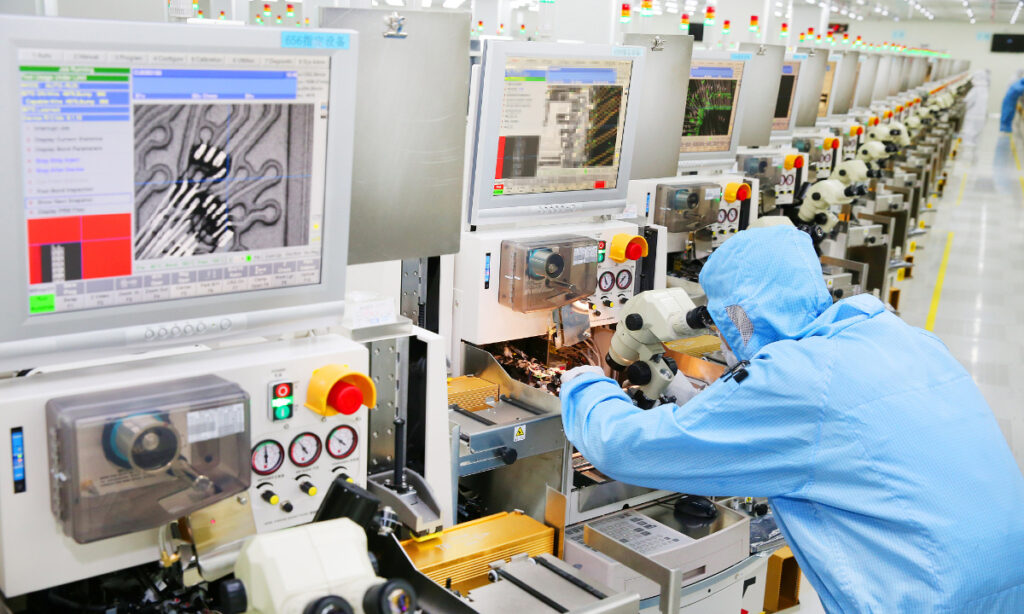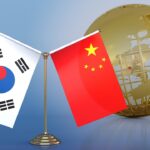The Netherlands’ export controls on cutting-edge chipmaking tools officially take effect on Friday, a move that coincides with US Commerce Secretary Gina Raimondo’s “productive” China visit, while Chinese netizens are getting excited over Huawei’s new handset launch despite US curbs.
Observers said the timing of the rule is putting the Netherlands at a disadvantage, as its insistence on joining the US to curb China – which may have achieved a major breakthrough in getting around US chip sanctions – could push its chipmaking giant ASML into dangerous situation of further losing market share.
Early Friday morning, ASML told the Global Times it had obtained licenses to be able to continue shipments of chip tools to China until the end of the year.
“The Dutch licensing authorities have issued the licenses we need as of September 1 to be able to continue shipments of the NXT:2000i and subsequent systems this year,” the company said, stressing that it does not expect the regulation to have “a material impact on its 2023 financial outlook or longer-term outlook.”
It will not be able to ship its most advanced DUV tools to China after January 1, 2024.
“A months-long license could be a buffer for ASML, but China’s possible breakthrough in homemade 5G chips, which are very likely made without using its most advanced equipment, will mean long-term losses for the Dutch giant,” Ma Jihua, a veteran industry analyst, told the Global Times on Friday.
On Tuesday, Huawei unexpectedly announced the preorder of its high-end Mate60 Pro smartphone series, which some speculated was using a homemade 5G capable chip.
Huawei did not confirm the news, and has been low key about the chipset, but observers, industry players and netizens believe the unexpected launch highlights the country’s capability of conducting independent technological research and development, represents a show of “muscle” and will give China many more bargaining chips when dealing with the US.
China and the US wrapped up their latest trade discussions on Wednesday, with Raimondo holding “productive” talks with several senior officials including China’s trade minister Wang Wentao. The visit generated tangible results, including the establishment of a mechanism for exchanging export control information.
At the talks, semiconductor policies are one of the key issues, with China lodging “serious concerns,” the Chinese Commerce Ministry said on Thursday.
“Five years on, with China’s technological progress continuing despite US sanctions, the balance in the years-long China-US tech war has also tilted, and the initiative is gradually returning to China,” Ma said.
On Friday, Ren Hongbin, Chairman of the China Council for the Promotion of International Trade, met with John Neufer, President and CEO of the US Semiconductor Industry Association in Beijing. The two exchanged views on jointly promoting practical cooperation between the Chinese and US business communities in the field of semiconductors.
If the US altered or changed its semiconductor policy on China, its allies, who have blindly followed or been forced to join its containment of China and have already seen losses from curbing China exports, will be at a more disadvantaged position, Ma said.
“It might be time for the Netherlands and Japan to both think twice about their China strategy,” said the expert.
China and the Netherlands have maintained communication on chip equipment export controls, Shu Jueting, a spokesperson of China’s Ministry of Commerce (MOFCOM), said on Thursday in response to the Dutch move.
It is hoped that all parties, including the Netherlands, will ensure the legitimate rights and interests of enterprises by taking an objective and fair stance, respecting market principles, respecting contracts, and following international rules and free and open international trade, Shu said.
On June 30, the Dutch government announced a ministerial order restricting exports of certain advanced semiconductor equipment, a move widely believed to target China due to pressure from the US.
Japanese restrictions on exports of advanced chip-manufacturing equipment took effect in late July.
(Global Times)




